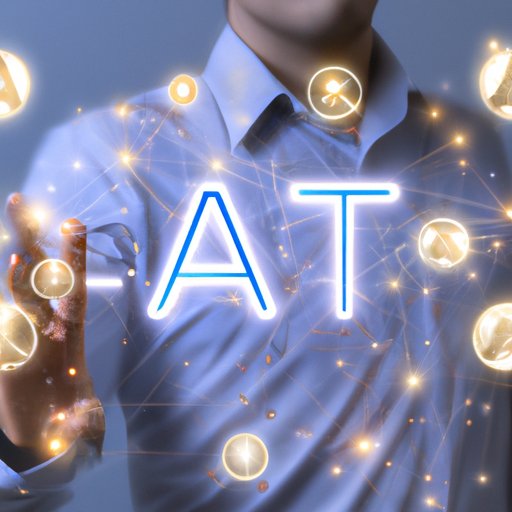Introduction
Artificial intelligence (AI) is a rapidly growing field of technology that has seen significant advances in recent years. AI systems are becoming increasingly prevalent in our lives, from personal assistants like Alexa to self-driving cars. But what exactly is an AI system? How does it work? And what impact will it have on our society? This article explores these questions, providing an overview of what an AI system is and delving into the potential implications of this technology.
Definition of an AI System
An AI system can be defined as “a computer system designed to perform tasks that typically require human intelligence, such as visual perception, speech recognition, decision-making, and translation between languages” (Techopedia). AI systems are designed to mimic human behavior, learning from experience and adapting to their environment. This type of machine learning can enable AI systems to solve problems, make decisions, and even respond to spoken commands.

Overview of Different Types of AI Systems
AI systems come in many forms, ranging from basic algorithms to complex neural networks. Examples of different types of AI systems include:
- Machine Learning: Machine learning involves using algorithms to analyze data and learn from patterns. It enables machines to recognize objects, identify trends, and make predictions.
- Natural Language Processing (NLP): NLP is a type of AI system that enables machines to understand and interpret natural language. This technology can be used for tasks such as translation and text analysis.
- Robotics: Robotics is a field of AI that focuses on designing and building robots. These machines can be programmed to complete tasks autonomously, often with greater accuracy and speed than humans.

Benefits of Using an AI System
AI systems offer a number of potential benefits, including increased efficiency, improved analytics, and automation of tasks.
Increased Efficiency
AI systems can significantly improve the efficiency of processes by automating mundane tasks. According to a study by Capgemini Consulting, “Organizations that deploy AI technologies can expect to experience a 25% improvement in operational efficiency and a 30% reduction in costs” (Capgemini). This can lead to faster production times, improved customer service, and greater cost savings.
Improved Analytics
AI systems can also provide valuable insights through data analysis. By analyzing large amounts of data, these systems can identify trends and uncover correlations that may have been previously overlooked. This can help organizations make better decisions and optimize their operations.
Automation of Tasks
AI systems can automate repetitive tasks, freeing up employees to focus on more meaningful work. For example, automated chatbots can handle customer inquiries, while robotic process automation (RPA) can automate tedious back-office tasks. This can help reduce labor costs and improve productivity.
Potential Downsides of AI Systems
While there are many potential benefits of AI systems, there are also some potential drawbacks. These include security risks, lack of human interaction, and cost of implementation.
Security Risks
AI systems can be vulnerable to malicious attacks, as hackers can use machine learning algorithms to find weaknesses in a system. As AI systems become more prevalent, security risks will need to be addressed to ensure the safety of users.
Lack of Human Interaction
AI systems can also lack human interaction, as they are unable to fully understand human emotions and reactions. This can lead to misunderstandings or miscommunications, which can have serious consequences in certain situations.
Cost of Implementation
The cost of implementing an AI system can also be prohibitive for some organizations. AI systems require powerful hardware and software, as well as skilled personnel to operate and maintain them. This can make them expensive to implement and difficult to scale.

Impact of AI on Society
The increasing prevalence of AI systems is likely to have a profound effect on society. The most immediate impacts are likely to be job losses and social implications, as well as ethical considerations.
Job Losses
The automation of jobs by AI systems is likely to lead to job losses in certain sectors. For example, according to a report by PwC, “AI could replace 7 million jobs in the UK alone by 2037” (PwC). This could have a significant impact on employment, as those jobs are replaced by machines.
Social Implications
The rise of AI systems could also have broader social implications. For example, AI systems could be used to manipulate public opinion or manipulate markets. This could lead to increased inequality, as those with access to AI systems gain an advantage over those without.
Ethical Considerations
As AI systems become more advanced, ethical considerations must be taken into account. For example, who is responsible if an autonomous vehicle causes an accident? Or how should an AI system be programmed to make decisions about healthcare treatments? These are questions that must be addressed in order to ensure the safe and ethical use of AI systems.
Looking at the Future of AI Systems
The future of AI systems is likely to be one of continued advancement and increased adoption. Advances in technology will enable AI systems to become more powerful and capable. This could lead to new applications in areas such as healthcare and transportation.
Advances in Technology
As technology advances, AI systems will become more powerful and capable. This could lead to breakthroughs in fields such as healthcare, where AI systems could be used to diagnose diseases or provide personalized treatments. It could also lead to the development of intelligent robots, which could be used to assist in tasks such as manufacturing and construction.
Increased Adoption
As AI systems become more powerful and cost-effective, their adoption is likely to increase. This could lead to more widespread use of AI systems in everyday life, from personal assistants to self-driving cars. AI systems could also be used to improve the efficiency of businesses, leading to increased productivity and profitability.
Potential Applications
The potential applications of AI systems are virtually limitless. From understanding natural language to predicting market trends, AI systems could revolutionize the way we live and work. They could also be used to tackle global challenges, such as climate change and poverty. The possibilities are truly exciting.
Conclusion
In conclusion, AI systems are becoming increasingly prevalent in our lives. They offer a number of potential benefits, such as increased efficiency, improved analytics, and automation of tasks. However, there are also potential downsides, such as security risks, lack of human interaction, and cost of implementation. The impact of AI on society is likely to be profound, from job losses to ethical considerations. Looking to the future, AI systems are likely to become more powerful and capable, leading to increased adoption and potential applications in many areas.
(Note: Is this article not meeting your expectations? Do you have knowledge or insights to share? Unlock new opportunities and expand your reach by joining our authors team. Click Registration to join us and share your expertise with our readers.)
